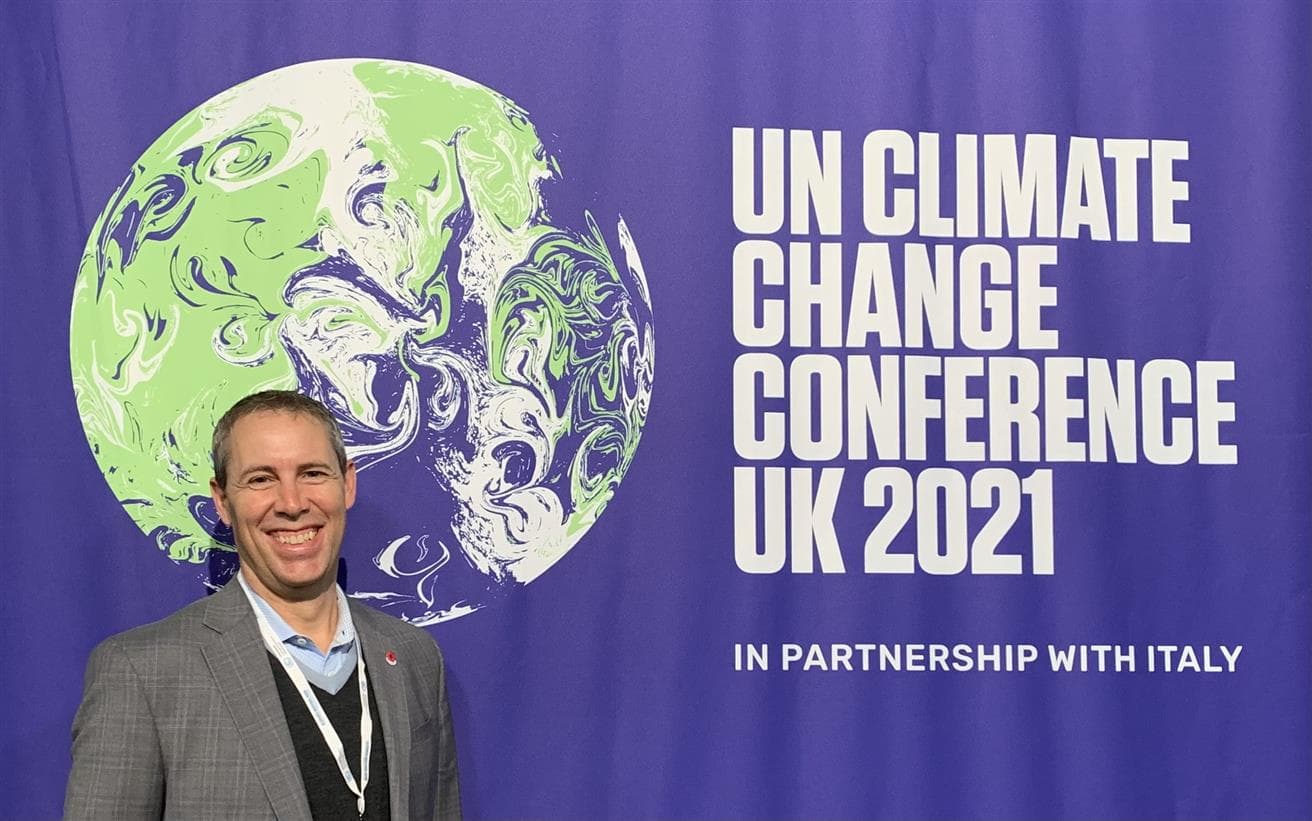But listening to critics, sharing Suncor’s perspectives and building relationships was more important to Jon than winning popularity contests.
“We won’t make progress by only engaging with people who agree with us,” says Jon, Vice President, Sustainability. “And if we retreat from conversations because they are hard, we limit our ability to participate in solutions.”
COP26 isn’t a traditional conference with an agenda, keynote speeches and social mixers. Jon compares it to a music festival with hundreds of different venues staging their own events independent of each other.
“It would be very easy to get completely lost because there’s no master schedule to help you navigate,” Jon says. “My focus was working with people willing to engage with us as the world moves through the energy transition. We need to understand where the ball is moving on the playing field and then work with people interested in shared outcomes. This allows Suncor to manage risks and invest in the right technologies. In order to navigate the energy transition from a position of strength, we must provide strong returns to shareholders. This requires our existing integrated energy business to be profitable as we reduce its emissions, along with seeking economic investments in expanded energy offerings that align with our core capabilities.”
Suncor has already invested in and adopted low-carbon solutions, such as wind, cogeneration and renewable fuels. Research also continues for in situ and mining technologies to reduce energy intensity. And Suncor is a founding member of the Oil Sands Pathways To Net Zero alliance. But Jon was also focused on listening to concerns at COP26 rather than simply sharing Suncor’s progress on net-zero energy.
“People, regulators, investors and governments expect us to make progress or we are going to be left behind. You cannot approach it as ‘you’d like us more if you understood us.’ Listening to what people have to say and focusing on shared outcomes is more valuable,” he says. “The good news is Canada shows up well and we’re acting and moving in every area where other countries are struggling, such as carbon pricing, methane reduction and phasing out coal. That gives us credibility.”
A short-term rise in energy prices has also helped put the challenges of energy transition into perspective.
“What happens to those communities reliant on traditional sources of energy production? There has to be a focus on ensuring no people or communities are left behind,” he says. “And the people hardest hit by rising energy costs are those who can least afford it. And that can cause the loss of public support, as we saw in France in May 2018 with ‘yellow vest’ protests where almost three million people protested high taxes on fuel and the cost of gasoline. This eventually forced President Emmanuel Macron to cancel the tax increase on fuel in November 2018.”
And that is a reminder of what needs to happen beyond COP26.
“Oil and gas play an important part in the energy transition as the world shifts to a net-zero economy. As a leading energy company, we can help shape the outcomes by being a part of these conversations, even if they are uncomfortable.”
To learn more about Suncor’s commitment to sustainability or download our Report on Sustainability or Climate Report, go to https://sustainability.suncor.com/en


